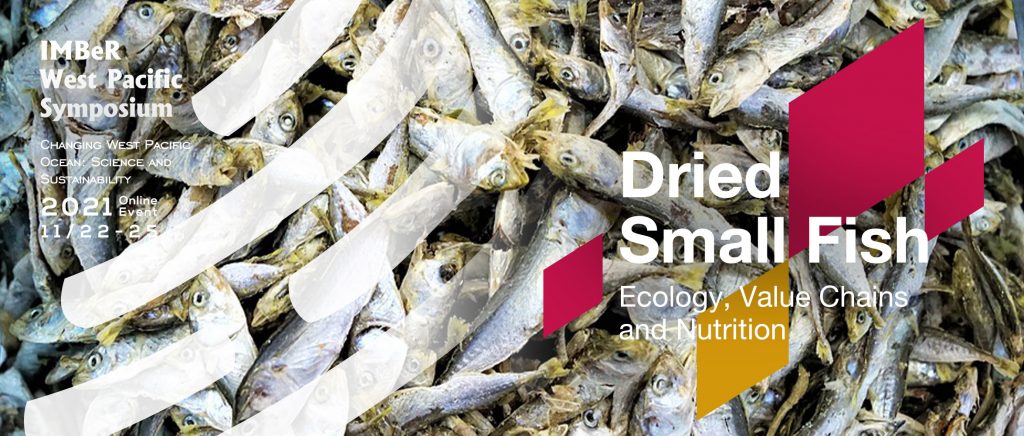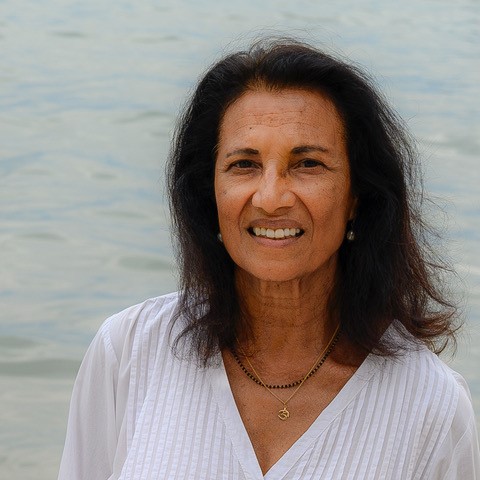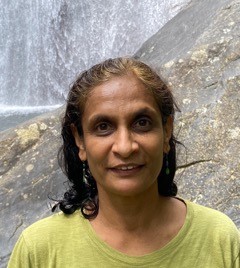Session 3: Dried Small Fish: Ecology, Value Chains and Nutrition

About this session
Dried, salted, fermented, pickled small fish, and derivative products are an important and ancient category of processed aquatic foods. They supply a concentrated source of micro-nutrients to diets of large populations in Asia, provide livelihoods to millions of small-scale fishers, processors and traders, and are a culturally significant component of Asian cuisines. The availability of small pelagic fish, such as anchovy and sardine, to producers, traders and consumers is linked with the ecology of these species. The patterns of movement of these fish species in the West Pacific and Indian oceans are increasingly shaped by human impacts (stressors) on the ocean, such as climate change. This session seeks to engage in a multidisciplinary/interdisciplinary dialogue on the links among ecology, value chains and nutrition related to small fish, used for drying and other forms of processing, in rapidly changing environmental and economic contexts. Expressions of interest are invited from natural scientists working on ecology and nutrition of small fish (e.g. anchovy, sardine) in the West Pacific and Indian oceans, as well as social scientists working on dried/processed small fish value chains in East, Southeast and South Asia. Abstract selection will be guided by the openness to present within multi-disciplinary, sub-regional groups.
Keynote Speaker

Shakuntala Haraksingh Thilsted, WorldFish Center, Malaysia
Keynote title: Aquatic Foods for Nourishing the West Pacific
Shakuntala Haraksingh Thilsted is the Global Lead for Nutrition and Public Health at WorldFish, a One CGIAR entity. She was awarded the 2021 World Food Prize for her ground-breaking research, critical insights, and landmark innovations in developing holistic, nutrition-sensitive approaches to aquatic food systems, including aquaculture and capture fisheries. She was awarded the 2021 Arrell Global Food Innovation Award for research innovation. She played a key role in the development of the WorldFish 2030 research and innovation strategy: Aquatic Foods for Healthy People and Planet. She is a member of the Steering Committee of the High Level Panel of Experts on Food Security and Nutrition (HLPE) of the United Nations Committee on World Food Security (CFS) and Vice Chair of the UN Food Systems Summit 2021: Action Track 4 – Advance Equitable Livelihoods, and also a Food Systems Champion. She plays a pivotal role in promoting aquatic food systems for nourishing nations and achieving the Sustainable Development Goals (SDGs). Shakuntala holds a PhD from the Royal Veterinary and Agricultural University (presently: Faculty of Life Sciences, University of Copenhagen), Denmark. She also holds an Honorary Doctorate from the Swedish University of Agricultural Sciences.
Co-moderators

Nireka Weeratunge, International Centre for Ethnic Studies, Sri Lanka
Nireka Weeratunge is a Research Fellow at the International Centre of Ethnic Studies (ICES) in Colombo, Sri Lanka and a member of the Scientific Steering Committee of Integrated Marine Biosphere Research (IMBeR). She collaborates on the research project ‘Dried Fish Matters: Mapping the Social Economy of Dried Fish in South and Southeast Asia for Enhanced Wellbeing and Nutrition’ with the University of Manitoba, Canada and University of Ruhuna, Sri Lanka, supporting gender analysis and qualitative methods. She is also the qualitative lead of the ‘Social-ecological Dynamics in Rapid Economic Development: Infrastructure and Coastal Change in Southeastern Sri Lanka’ (SEDRIC) project at ICES, led by the French Institute of Pondicherry, India. She has a PhD in anthropology from the University of Toronto, Canada with over 25 years of research and practice in the interface of gender, environment and development issues in the Asia-Pacific region. Her main areas of work are the social and cultural aspects of natural resource use, focusing on livelihood strategies in relation to poverty, vulnerability, resilience and wellbeing in fishing and farming communities. She has worked in Sri Lanka, Bangladesh, Cambodia, China (Yunnan), Laos, Myanmar, Solomon Islands, Philippines and Vietnam.

Derek Johnson, University of Manitoba, Canada
Derek Johnson is Professor of socio-cultural anthropology at the University of Manitoba and Head of the Department of Anthropology. He draws particularly on environmental and economic anthropology, political ecology, and social wellbeing in his research on small-scale fisheries in Asia and Canada. Dr. Johnson leads the Social Sciences and Humanities Research Council of Canada funded International Partnership Dried Fish Matters (www.driedfishmatters.org). Dried Fish Matters is conducting research on the social economy of dried fish in six focus countries in South and Southeast Asia.
- Deadline for abstracts: Extended to 10 October
- An example abstract is provided here
This session contributes to the following IMBeR Grand and Innovation Challenges
Grand Challenges

Grand Challenge III
Improving and achieving sustainable ocean governance
Innovation Challenges
Innovation Challenge 4
To Advance and Improve the Use of Social Science Data for Ocean Management, Decision Making and Policy Development